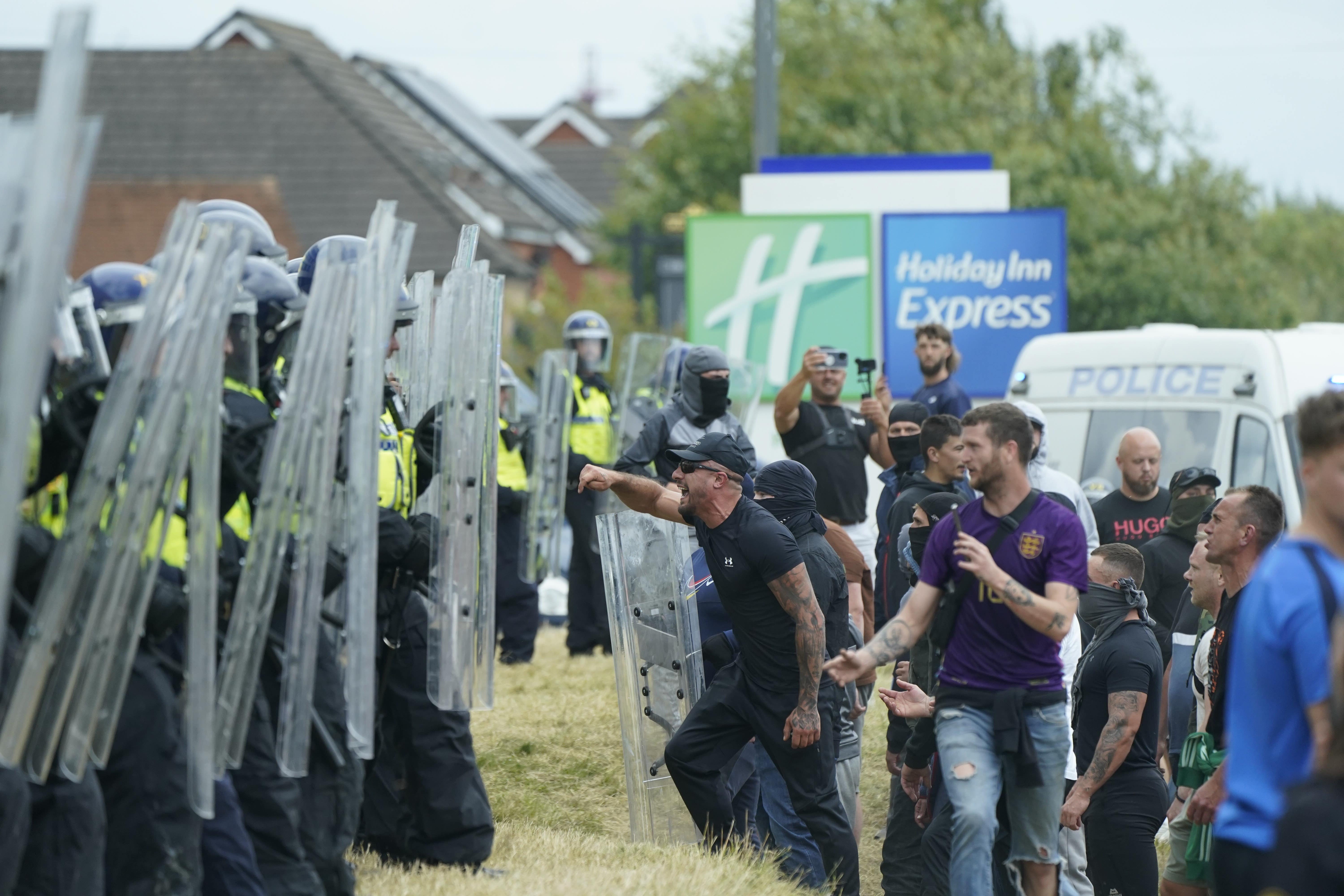Call out racist rioters for their beliefs and actions – not their social class
While the violence we’ve seen over the past few days has no place in our society, many are using it as an excuse to punch down on working class communities, writes Emma Clarke – insults like ‘thick’ help nobody


We’ve been living through almost a week of far-right riots on our streets, with hundreds of arrests following ugly confrontations, both on and offline.
As a result, perhaps inevitably, we’ve seen slurs hurled in every direction; from overt racism and Islamophobia to dismissive, sneering commentary from the person who owns the very platform being used to spread misinformation.
But what strikes me is that while a lot of the rhetoric about the disgraceful actions of the far-right is justified, some doesn’t help at all. In fact, it could actually make things worse.
I’m talking about the way working class people have been demonised.
Yes, the majority of those tearing up the streets are from lower income areas, but it’s a dangerous narrative to peddle that racism is reserved among the poor. It is systemic; it’s been prevalent in our government and in mainstream media for years, filtering from the top down.
The rich benefit from keeping working class people in their place. They grow wealthier and more powerful, using immigrants, asylum seekers and ethnic minorities as scapegoats to push a false reality whereby the lack of jobs, access to education and healthcare is their fault and not of those making these laws, cuts and policies in the first place.
As MP Zarah Sultana put it: “The enemy of the working class travels by private jet, not migrant dinghy.”
What’s more, while their behaviour is unequivocally deplorable and has no place in modern society, it is their actions and their views that are contemptible – not the fact they come from lower income backgrounds.
Too often this past week I have seen claims about rioters having just “one GCSE” and “no brain cells”, as well as attacks on the “thick, toothless scum” who are no more than “trash”. This language is hugely problematic – as is the message it sends.
It highlights the deep-rooted prejudices held by people in this country and serves to reinforce the “us versus them” narrative, not dismantle it.
Steeped in snobbery, these phrases being bandied about will be internalised by the many working class people who haven’t taken to the streets to cause chaos, who haven’t delivered racial and Islamophobic slurs and racially-motivated attacks.
I know I have personally grappled with these comments. While my circumstances may have changed, I grew up in a deprived area, in a low income household, and I will always identify as working class. Throughout my formative years I was painfully aware of the many differences that set me apart from my wealthier and more fortunate counterparts, and strived for more: our lack of money and opportunity wasn’t the sum of my worth.
That doesn’t mean the judgement and hardship hasn’t stayed with me. I fought to get into university, but the differences between me and my peers were even more stark there. And when I entered my career, I was surrounded by those with family connections and trust funds, and who had been privately educated. I often felt inferior.
And there’s no “woe is me” about this. That’s just what happened and how I felt. But had I been less resilient – or had I not had the backing of family and friends and was just constantly surrounded by people telling me I was worthless and thick – I would have never risen above it and demanded more for myself.
Some people’s takeaway from this current dialogue will be that they are less than, when that is simply not true. And worse still, if they do end up believing this sentiment is the reality, they will likely live up to the expectation, perpetuating the issue.
Most importantly, this line of conversation wrongly takes the focus away from the key issue at hand, making it about class wars – rather than the fight against racism and xenophobia.
It also overshadows the victims of the Southport stabbings, whose deaths should never have been politicised. They deserve to be remembered and mourned properly, without this ugly shadow looming over them.






Join our commenting forum
Join thought-provoking conversations, follow other Independent readers and see their replies
Comments